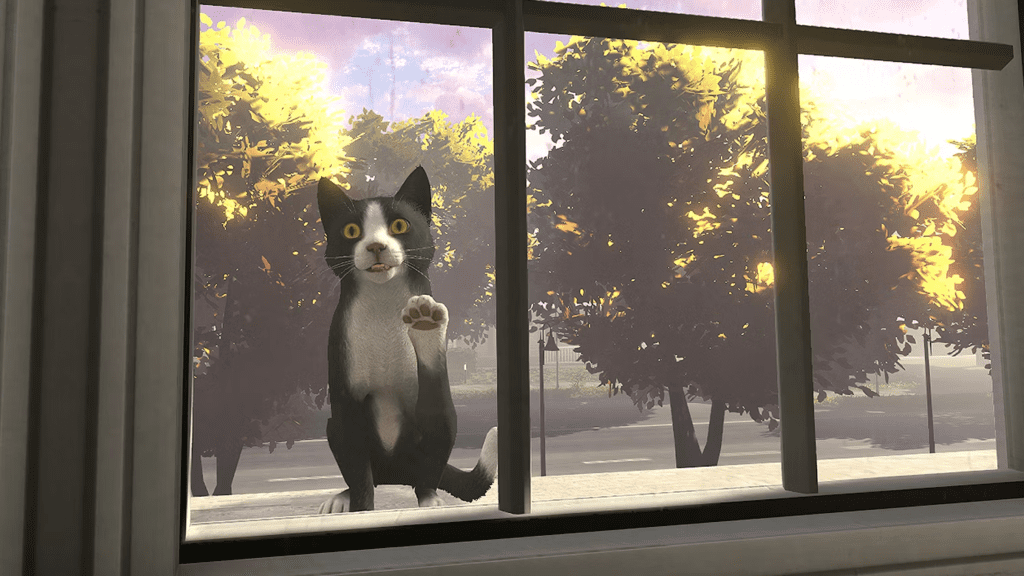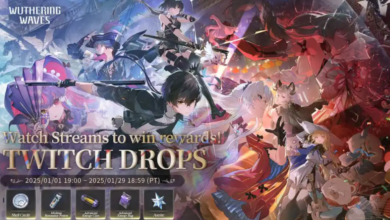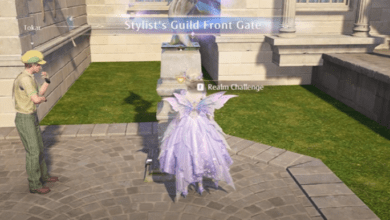Copycat Game Review: A Heart-warming Indie Game with an Emotional Depth that Resonates
Ever wondered what life looks like from a cat’s perspective? Imagine navigating the world with feline instincts, faced with loneliness, hope, and the desire to belong. That’s exactly what “Copycat” offers a narrative-driven indie game that takes players on an emotional journey through the eyes of a shelter cat named Dawn.

In this article, we’ll dive deep into the intricacies of the game, exploring not just the story and characters but also how its simplistic gameplay and evocative visuals create an experience that sticks with you long after the credits roll.
A Story of Loss, Hope, and Finding One’s Place in the World
At the heart of Copycat is a touching story about resilience and the universal quest for belonging. The narrative begins with Dawn, a reserved shelter cat who has just been adopted by Olive, an elderly woman seeking companionship after the loss of her previous pet. For Dawn, this new life offers a chance to find warmth, love, and security. But things quickly turn dark when a stray cat, possibly the original “Dawn,” returns to reclaim its place in Olive’s life, leaving our protagonist abandoned once again.
As Dawn is thrust into the unfamiliar world outside the home, she must navigate her own emotions grief, abandonment, and a growing sense of distrust toward humans. This emotional journey is poignant, bringing players face-to-face with the complex emotions that come from losing a place you once felt safe.
The game taps into themes of loneliness, trust, and self-discovery, reflecting how these universal struggles resonate not just with the character of Dawn but with players too. You don’t need to be a cat person to feel for Dawn’s plight the emotions she experiences are human at their core, something we’ve all felt at some point in our lives.
Visual Storytelling: Nostalgia and a Cat’s Eye View of the World
One of the game’s most standout features is its visual presentation, which is simple yet beautifully executed. Instead of relying on complex graphics or high-end animation, Copycat leans into a more nostalgic art style that’s both comforting and heart-wrenching at times. The warm, inviting colours of Olive’s home give way to the cold, dark streets when Dawn is cast out, creating a contrast that mirrors her emotional journey.
In moments of reflection, players experience flashbacks of Dawn’s former life, revealing fragments of her past through dreamlike sequences. These memories are where the game’s visual storytelling truly shines. The muted tones and symbolic imagery provide a glimpse into Dawn’s troubled history with previous owners, without overwhelming players with exposition.
The cityscape outside is gritty yet intriguing, capturing what it must feel like to be a small creature in a vast, unpredictable world. Every shadow, alley, and corner adds to the sense of danger and vulnerability that Dawn feels as she embarks on her adventure. As you guide her through these spaces, it’s impossible not to feel invested in her journey this isn’t just a game about survival, it’s a game about reclaiming one’s sense of self.
The Gameplay: Simple Yet Emotionally Engaging
At first glance, Copycat doesn’t seem to offer much in terms of gameplay mechanics. There are no intense action sequences, no complicated puzzles, and no fast-paced combat. Instead, the game places its focus squarely on storytelling, using gameplay as a way to deepen the emotional connection between the player and Dawn.
You’ll find yourself guiding Dawn through a mix of exploration, light puzzle-solving, and interaction with other animals in the city. Mini-games scattered throughout add a bit of variety, whether it’s chasing after objects or avoiding obstacles. These moments provide a break from the heavier narrative while still keeping you engaged.
However, for players seeking more action or consequence-driven decisions, the game’s repetitive gameplay and lack of meaningful choices may be a slight disappointment. While you are presented with options throughout the game, like whether to trust a certain character or explore a new area, the outcomes don’t drastically change the direction of the story.
But this doesn’t mean the game lacks depth. What it may lack in mechanical complexity, it more than makes up for in emotional impact. Every moment spent guiding Dawn through her journey feels significant, even when the gameplay itself is fairly straightforward. The small, quiet interactions like curling up in a warm spot or meowing for attention add layers to the character of Dawn, reminding us that sometimes, the simplest moments can carry the most weight.
Characters That Pull at Your Heartstrings
One of the standout features of Copycat is its richly developed characters. While the game centres on Dawn, the secondary characters add depth and complexity to the story. Olive, the elderly woman who adopts Dawn, is more than just a pet owner she’s a woman grappling with her own loss and loneliness. Her impulsive decision to adopt Dawn reflects her need for connection, which makes the eventual betrayal all the more heart breaking.
Olive’s daughter, Mae, adds another layer to the story. While she loves her mother, Mae feels burdened by the responsibility of caring for her. This complex relationship between mother and daughter serves as a secondary narrative, subtly woven into the larger story about Dawn. These dynamics create a more multifaceted world, where the emotional stakes are always high, even if the gameplay remains simple.
Dawn’s inner thoughts are narrated by a wildlife expert, a clever narrative device that gives voice to her emotional turmoil. This external voice becomes a stand-in for Dawn’s conscience, guiding players through her internal conflict as she struggles to trust and open up to the humans around her.
The Emotional Core: A Game That Stays With You
The true strength of Copycat lies in its ability to evoke emotion. From the moment Dawn is abandoned, players are pulled into her world, feeling her loneliness and desire for love. The game doesn’t shy away from heavy themes like abandonment, betrayal, and self-doubt, but it balances them with moments of tenderness and hope.
The ambiguous ending, while leaving some questions unanswered, is a fitting conclusion to a game that’s more about the emotional journey than the destination. It’s a reminder that not all stories need neat resolutions sometimes, the most powerful experiences come from what is left unsaid.
As the credits roll, you’ll likely find yourself reflecting on your own relationships, both with your pets and the people in your life. Copycat is more than just a game; it’s a heartfelt exploration of connection, loyalty, and the universal need to feel like you belong.
Should You Play Copycat? A Game For the Heart, Not the Thrill
If you’re an animal lover or someone who enjoys narrative-driven games, Copycat is a must-play. It’s a short game you can finish it in about three hours but those hours are packed with emotional resonance. You’ll laugh, you’ll cry, and you’ll probably want to hug your pet a little tighter afterward.
That being said, if you’re looking for a game with fast-paced action or high-stakes decision-making, this might not be for you. The gameplay is relatively simple and occasionally repetitive, especially in the outdoor mini-games. And while the choices you make don’t drastically alter the story, they do offer moments of reflection and pause, which contribute to the overall narrative.
For those willing to embrace its slower pace and emotional depth, Copycat offers an unforgettable experience that tugs at your heartstrings and leaves you thinking long after you’ve finished playing.
Final Thoughts
Copycat succeeds where many narrative-driven games fall short: it creates an emotional connection that feels deeply personal. Through the eyes of a cat, players are able to explore some of the most universal human emotions loss, love, trust, and the desire to belong. Whether you’re a gamer or not, this story-driven adventure is bound to resonate with anyone who has ever sought connection in a world that sometimes feels indifferent.
So, will you play it?





